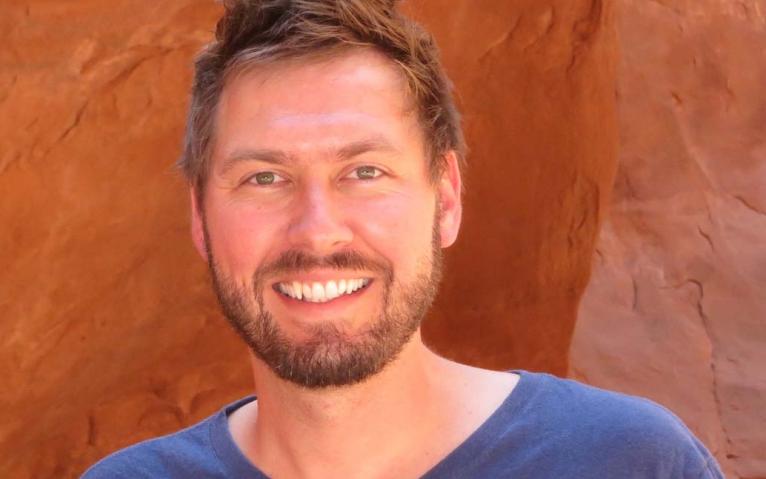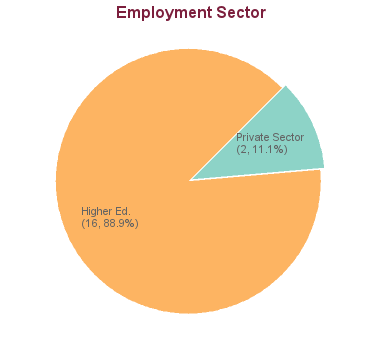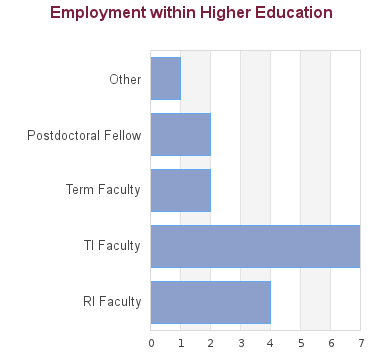
Taylor Davis
Job Title
Assistant Professor
Employer
Purdue University

Review details about the recently announced changes to study and work permits that apply to master’s and doctoral degree students. Read more
The UBC PhD in Philosophy provides students with intense philosophical training, and can help them transition to careers in philosophical research and teaching.
Those admitted will work with award-winning faculty members who engage in research in a wide variety of areas, including the philosophy of science, philosophy of mind, metaphysics, epistemology, philosophy of language, aesthetics, ethics, social/political philosophy, feminist philosophy, logic, Asian philosophy and the history of Western philosophy.
Students also get the opportunity to gain experience of teaching philosophy, through work as teaching assistants and instructors of record in a broad range of courses.
Students in the UBC Department of Philosophy's doctoral programme work closely with the department's faculty, and so benefit fully from our internationally recognized expertise in a unique range of philosophical fields. The department has a supportive, collegial, and philosophically inspiring culture. Students have a range of opportunities to participate fully in its intellectual life. They are also encouraged to participate in the broader community of philosophers, with several sources of funding being available that enable students to present their research at international academic conferences.
During their first two years in the program all students take courses that provide them with expertise in a broad range of philosophical topics, including value theory, the history of philosophy, and the core areas of metaphysics and epistemology. They also receive training in whatever formal research methods might be necessary for their work. Students who successfully complete the department's comprehensive examination then go on to write a dissertation, working under the supervision of a committee of faculty members, in which their own philosophical ideas are presented and explained.
The Faculty of Graduate and Postdoctoral Studies establishes the minimum admission requirements common to all applicants, usually a minimum overall average in the B+ range (76% at UBC). The graduate program that you are applying to may have additional requirements. Please review the specific requirements for applicants with credentials from institutions in:
Each program may set higher academic minimum requirements. Please review the program website carefully to understand the program requirements. Meeting the minimum requirements does not guarantee admission as it is a competitive process.
Applicants from a university outside Canada in which English is not the primary language of instruction must provide results of an English language proficiency examination as part of their application. Tests must have been taken within the last 24 months at the time of submission of your application.
Minimum requirements for the two most common English language proficiency tests to apply to this program are listed below:
Overall score requirement: 100
Reading
22
Writing
21
Speaking
21
Listening
22
Overall score requirement: 7.0
Reading
6.5
Writing
6.5
Speaking
6.5
Listening
6.5
Some programs require additional test scores such as the Graduate Record Examination (GRE) or the Graduate Management Test (GMAT). The requirements for this program are:
The GRE is not required.
All applicants have to submit transcripts from all past post-secondary study. Document submission requirements depend on whether your institution of study is within Canada or outside of Canada.
A minimum of three references are required for application to graduate programs at UBC. References should be requested from individuals who are prepared to provide a report on your academic ability and qualifications.
Many programs require a statement of interest, sometimes called a "statement of intent", "description of research interests" or something similar.
Students in research-based programs usually require a faculty member to function as their thesis supervisor. Please follow the instructions provided by each program whether applicants should contact faculty members.
Permanent Residents of Canada must provide a clear photocopy of both sides of the Permanent Resident card.
All applicants must complete an online application form and pay the application fee to be considered for admission to UBC.
| Fees | Canadian Citizen / Permanent Resident / Refugee / Diplomat | International |
|---|---|---|
| Application Fee | $116.25 | $168.25 |
| Tuition * | ||
| Installments per year | 3 | 3 |
| Tuition per installment | $1,875.34 | $3,294.66 |
| Tuition per year (plus annual increase, usually 2%-5%) | $5,626.02 | $9,883.98 |
| Int. Tuition Award (ITA) per year (if eligible) | $3,200.00 (-) | |
| Other Fees and Costs | ||
| Student Fees (yearly) | $1,144.10 (approx.) | |
| Costs of living | Estimate your costs of living with our interactive tool in order to start developing a financial plan for your graduate studies. | |
Applicants to UBC have access to a variety of funding options, including merit-based (i.e. based on your academic performance) and need-based (i.e. based on your financial situation) opportunities.
From September 2024 all full-time students in UBC-Vancouver PhD programs will be provided with a funding package of at least $24,000 for each of the first four years of their PhD. The funding package may consist of any combination of internal or external awards, teaching-related work, research assistantships, and graduate academic assistantships. Please note that many graduate programs provide funding packages that are substantially greater than $24,000 per year. Please check with your prospective graduate program for specific details of the funding provided to its PhD students.
This results in a net balance (any funding provided to the student minus tuition and fees) mean of $36,198 and median of $36,713.
All applicants are encouraged to review the awards listing to identify potential opportunities to fund their graduate education. The database lists merit-based scholarships and awards and allows for filtering by various criteria, such as domestic vs. international or degree level.
Many professors are able to provide Research Assistantships (GRA) from their research grants to support full-time graduate students studying under their supervision. The duties constitute part of the student's graduate degree requirements. A Graduate Research Assistantship is considered a form of fellowship for a period of graduate study and is therefore not covered by a collective agreement. Stipends vary widely, and are dependent on the field of study and the type of research grant from which the assistantship is being funded.
Graduate programs may have Teaching Assistantships available for registered full-time graduate students. Full teaching assistantships involve 12 hours work per week in preparation, lecturing, or laboratory instruction although many graduate programs offer partial TA appointments at less than 12 hours per week. Teaching assistantship rates are set by collective bargaining between the University and the Teaching Assistants' Union.
Academic Assistantships are employment opportunities to perform work that is relevant to the university or to an individual faculty member, but not to support the student’s graduate research and thesis. Wages are considered regular earnings and when paid monthly, include vacation pay.
Canadian and US applicants may qualify for governmental loans to finance their studies. Please review eligibility and types of loans.
All students may be able to access private sector or bank loans.
Many foreign governments provide support to their citizens in pursuing education abroad. International applicants should check the various governmental resources in their home country, such as the Department of Education, for available scholarships.
The possibility to pursue work to supplement income may depend on the demands the program has on students. It should be carefully weighed if work leads to prolonged program durations or whether work placements can be meaningfully embedded into a program.
International students enrolled as full-time students with a valid study permit can work on campus for unlimited hours and work off-campus for no more than 24 hours a week during academic sessions.
A good starting point to explore student jobs is the UBC Work Learn program or a Co-Op placement.
Students with taxable income in Canada may be able to claim federal or provincial tax credits.
Canadian residents with RRSP accounts may be able to use the Lifelong Learning Plan (LLP) which allows students to withdraw amounts from their registered retirement savings plan (RRSPs) to finance full-time training or education for themselves or their partner.
Please review Filing taxes in Canada on the student services website for more information.
Applicants have access to the cost estimator to develop a financial plan that takes into account various income sources and expenses.
20 students graduated between 2005 and 2013. Of these, career information was obtained for 18 alumni (based on research conducted between Feb-May 2016):


Graduates from UBC's Philosophy PhD program have taken academic posts in philosophy, and in related disciplines, at research universities around the world. They also have a broad range of research skills, which make them attractive to employers in a range of fields, especially in those relating to media and the arts.
These statistics show data for the Doctor of Philosophy in Philosophy (PhD). Data are separated for each degree program combination. You may view data for other degree options in the respective program profile.
| 2023 | 2022 | 2021 | 2020 | 2019 | |
|---|---|---|---|---|---|
| Applications | 131 | 134 | 143 | 112 | 111 |
| Offers | 16 | 8 | 15 | 9 | 13 |
| New Registrations | 4 | 6 | 8 | 5 | 7 |
| Total Enrolment | 41 | 42 | 36 | 30 | 34 |
Students in research-based programs usually require a faculty member to function as their thesis supervisor. Please follow the instructions provided by each program whether applicants should contact faculty members.
These videos contain some general advice from faculty across UBC on finding and reaching out to a supervisor. They are not program specific.
| Year | Citation |
|---|---|
| 2014 | Dr. Inkpen examined the ways in which concepts of the artificial and the natural have structured the thought and practice of biologists since the 19th century. He articulated why many biologists have felt uneasy about artificial, experimental intervention. Despite contrary claims, he argues that more experimentation is not equivalent to better science. |
| 2014 | Dr. Tian studied collective responsibility and how political decisions affect our understanding of it. She argues that the deliberative model of democratic practice is more justifiable than the aggregative one. Deliberative democracy helps us exercise public reason, recognize the shared nature of collective decisions, and generate new collective actions. |
| 2013 | Dr. Brooks studied ways that attention and emotion can be adversely affected by circumstances, causing people to make moral mistakes. He found that there is no set of character traits that can protect against all of these effects in all circumstances, making it impossible for any individual to become morally perfect. |
| 2013 | Dr. Deery argues that neither the belief in being free to do otherwise nor the experience of having such freedom is inconsistent with there being just one physically possible future. Drawing on recent work in psychology, Dr. Deery develops a view that preserves our self-image as agents who can navigate among alternative pathways into the future. |
| 2013 | Dr. Isenberg's work explains how we can have real beliefs and emotions about fictional characters and situations when we know that they do not exist and did not occur. She developed a framework for characterizing these responses that will provide guidance for future work in the semantics of fiction and the philosophy of film. |
| 2013 | Dr. Johnston's work lies at the intersection between morality and beauty. He developed a theory of judgment that is sensitive to both, thus unifying, in part, ethics and aesthetics. This theory relies on the agent's skill of carefully getting to know the item up for judgment. His theory will have impact in ethics, aesthetics, and art education |
| 2012 | Dr. Celestino defended an original semantic and metaphysical account of mental states such as beliefs and desires, their reports and fiction. She provided a new understanding of how we talk about things with words. Her research thus contributes to the understanding of how language works. |
| 2012 | Dr. Stanev developed a theoretical framework for decision making, together with guidelines that provide important considerations for deciding on clinical trial conduct. These considerations include principles addressing the complexity of interpreting and evaluating interim decisions, based on epistemic and ethical factors, e.g. health, intervention, efficacy, and harm. |
| 2012 | Dr. Topornycky argues that moral responsibility does not require that choice originates outside the natural web of cause and effect. Choice is of moral concern because it partially constitutes our personhood. When we treat each other as persons, we are concerned with each other's will, which we protect by affording rights, and also holding one another responsible. |
| 2012 | Dr. Clarke investigated the concept of belief, one of the basic ways in which the mind interacts with the world around us. He developed a theoretical basis for the principle of positive thinking: whatever you truly believe about the future will come to pass. His research will be widely applicable to everything from psychotherapy to entrepreneurship. |
Philosophy offers courses in most major areas of the discipline, including epistemology, metaphysics, ethics, political and social philosophy, philosophy of art, philosophy of mind, philosophy of language, logic, philosophy of science, philosophy of biology, philosophy of mathematics, and history of philosophy.
Departments/Programs may update graduate degree program details through the Faculty & Staff portal. To update contact details for application inquiries, please use this form.

Here, you can choose from more than 300 graduate degree program options and 2000+ research supervisors. You can even design your own program.